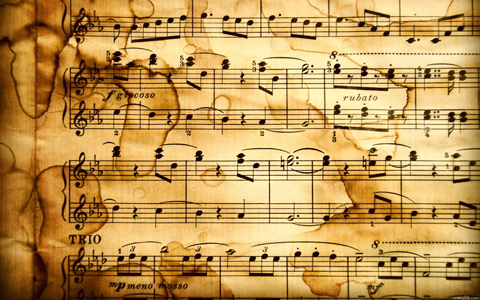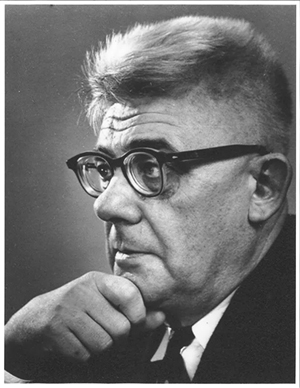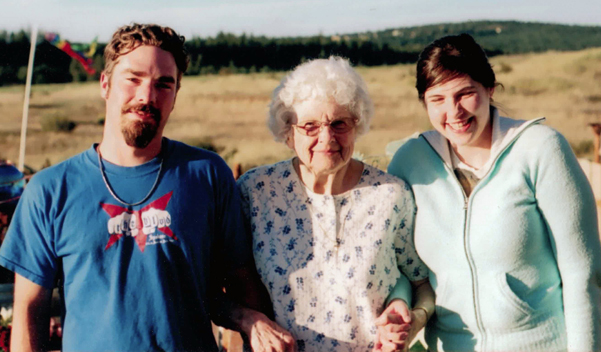April 2015
|
Aliens at Easter
Why are we most to be pitied, if only for this life we have
hoped (1 Corinthians 15:19)? We need to answer this question at
Easter when we are called to long for the life to come (2
Corinthians 5:2; Philippians 1:23; Hebrews 9:28). For Easter is
the time to celebrate life after death through the resurrection
of Christ our Lord (2 Corinthians 4:14), but this, as we see in
this question, will evidently take some doing.
Simply put, the reason we are to buck the trends
and long for heaven is because it is better than this
earthly life (Hebrews 11:16;
Luther’s Works
8:114). Luther says in his
Large Catechism
that we rebel against this Biblical truth and use our
money and property to make a paradise for ourselves here
on earth – rather than long for heaven, which is our
true home (Philippians 3:20;
The Book of Concord,
p. 365). So at Easter we not only are called to rejoice
in the resurrection from the dead, but also fight
against our taste for this life.
Therefore Saint Paul says we will have to think
of this life as refuse – or
stercusin
the old Latin Bible (Philippians 3:8) – in order that we
might gain everlasting life. This, indeed, will turn us
into aliens on earth (1 Peter 2:11). As arduous as this
may be, it is only then that we will hunger for the
bread of heaven, our resurrected Lord Jesus (John
6:34-35). Kierkegaard processed all of this and
concluded in 1854: “Man by nature wishes for what can
give him pleasure in life, the religious person on
active duty needs a proper dose of disgust with life in
order to be fit for the task” (Journals
6:6932).
May this Biblical disgust also resonate in our hearts
this year as we celebrate Easter.
Pastor Marshall |

|
President’s Report…by
Earl Nelson
You may have noticed two things on the church grounds that
changed in March.
The parsonage got a new coat of paint—earlier than expected
thanks to the dry weather we’ve been having.
Less noticeable perhaps is that three vine maples were
moved from in front of the chapel to the courtyard.
By the time this hits the press, it may already be Easter.
But right now it is Lent which is a good time to reflect
on God’s holiness.
“Holy” is related to the word “whole” and also “hale,” as in
healthy. The
English word “holy” is used to translate Hebrew Kadosh, I am
told, which also means “sacred.” The sacred is set apart from
the ordinary, the profane.
When we enter the sanctuary at church, we should feel
that we are entering a different kind of space, with different
meanings from those of a supermarket or a school.
To think of God’s holiness then is to reflect on the ways
that He is higher, better, truer, more whole than we, who
spiritually speaking, are messed-up, Fallen, and neither whole
nor hale. I like to
feel how different
God is when I enter our church.
Only a few pages at the beginning of Genesis describe our human
life before the Fall.
When God made Adam and Eve they were in His image and
shared in His holiness.
The unspoiled goodness of the Creation (Genesis 1 and 2)
lasts two or three pages.
When Adam and Eve sinned in the Garden they were no
longer holy and could not be in God’s presence in the Garden.
They lost the image of God, so that their descendants,
and you and I, are now in the image of Adam: “When Adam had
lived a hundred and thirty years, he became the father of a son
in his own likeness, after his image, and named him Seth”
(Genesis 5:3). Even
the ground is cursed because of the Fall (Genesis 3: 17).
The Creation still manifests something of God’s holiness, as we
find in many Psalms.
“The heavens are telling the glory of God; and the
firmament proclaims his handiwork,” begins Psalm 19.
But such beauty does not save us any more than the Law,
which is also beautiful.
Like the Law, it may only fill us with a longing that
cannot be satisfied by anything in ourselves or in Creation.
God is apart, separate, yet He excites in us a desire to
praise Him, as Augustine says in the prayer at the beginning of
his Confession.
God does this in spite of our exile and in spite of the
testimony of sin, which is death.
God has provided a way back to Him.
This way is Christ.
By dying on the Cross, Christ made it possible for us to be
reborn, not out of our mother’s womb again, as Nicodemus scoffed
(John 3:4), but reborn in the Holy Spirit, the Spirit that
Christ, later in John,
told the Disciples he would send after his death.
This is how we can be made holy (whole, healthy) again,
and the promise of Easter is that we will even be resurrected in
new bodies that are without sin.
Perhaps Nicodemus’ absurd notion is not so far from the
mark.
In the joy of Easter, which has not yet come as I write this,
let us continue to work for God’s Church here at First Lutheran
Church of West Seattle, by keeping the Sabbath holy, by meeting
or exceeding our pledges, by remembering the poor, by meditating
on the Word and by waiting on the Holy Spirit.
|
|
Stewardship
_________________________________________________
The 10/10/80 Principle
Often when discussing financial management tools, we hear of the
10/10/80 principle. Meaning, we Give 10%, Save 10%, and Spend
the remaining 80%. This tool is often used by youth and adults
to grow in discipleship financial management.
It may come as a surprise then that we start with “giving
10 percent.”
Why do we start with giving?
·
Giving begins with receiving. We recognize
and acknowledge that we receive everything from God.
“The earth is the Lord’s
…” (Psalm 24:1).
·
We respond to God because we are grateful;
this is worship.
“Celebrate with all the
bounty that the Lord your God has given to you” (Deuteronomy
26:11).
·
We respond because we trust God; it is
about faith, and that is why we first give our best to God’s
work and to all that glorifies God.
“It is required of
stewards that they be found trustworthy” (1 Corinthians
4:2).
Why give a significant amount?
·
So you notice your act of giving as God‐pleasing
rather than casual.
·
So you can better celebrate how
“where your treasure is,
there your heart will be also” (Matthew 6:21, Luke 12:34).
·
Consider tithing 10 percent. Why? It is a significant amount,
and it is a good traditional guideline for enabling God’s work
in the world and it’s Biblical.
·
Have you already met the goal of 10 percent? Prayerfully
consider blessing the church above and beyond with additional
gifts.
Why tithe?
·
It helps you gratefully establish your priorities and obey God.
·
It is wise financial management, leads you to appreciate
conservation and simplicity, encourages you to continue to grow
in becoming generous, and reflects a life journey, not an amount
of “money” or “dollars.”
·
You learn how God blesses you to grow.
·
It is God’s way for your congregation’s priorities and mission
statement to come to fruition.
Excerpt from
www.ELCA.org
Submitted by Janine Douglass, Church Council
|
|
“We Had to Have Him Put Away”
------------------------------------------------------------------------------------------------------------------------------------------------------------------------------
Praising the Schalk-Kennedy Hymn
By Pastor Marshall
On Passion Sunday, we sang “We
Had to Have Him Put Away” as our gradual hymn. I commissioned it
in thanksgiving to God for the 35th anniversary of my ordination
on June 25, 2014.
The tune was composed by Carl F.
Schalk (b. 1929) – one of the leading church musicians of our
time. The text was composed by the poet, X. J. Kennedy (b.
1929), winner of the Lamont Poetry Prize in 1961, and the Poetry
of America’s Robert Frost Medal for lifetime service in poetry
in 2009.
Dana Gioia, the Judge Widney
Professor of Poetry and Public Culture at the University of
Southern California, the former chairman of the National
Endowment of the Arts (2003–2009), and an active Roman Catholic,
says that the Kennedy text makes for “a fine hymn.” And Carl E.
Braaten, Professor Emeritus at the Lutheran School of Theology
at Chicago, thinks that the text isn’t confusing, but “crystal
clear.” And Michael Aune, Professor Emeritus of Liturgical &
Historical Studies at Pacific Lutheran Theological Seminary of
California Lutheran University, notes that the text is “very
Forde-ean (as in Gerhard) where the atonement has a head-on
collision with sin, evil, and the powers-that-be,” which makes
it a “most apt” gradual hymn for Passion Sunday.
Philip H. Pfatteicher, liturgical
scholar and author of many books on Lutheran worship, believes
this is a “bold” hymn precisely because of its text. And Deborah
Loftis, Executive Director of the Hymn Society in the US and
Canada, also finds the text to be “provocative,” and thinks
Schalk’s tune is “well-matched and sings easily.” Sean Burton,
editor of The Choral
Scholar, also likes the tune and thinks the hymn is
“well-suited” for use as a gradual hymn on Passion Sunday. Paul
Westermeyer, Emeritus Professor of Church Music, Luther
Seminary, Saint Paul, Minnesota, and author of the acclaimed
study, The Church
Musician (1988; revised 1997), likes Schalk’s “mournful”
tune, and thinks the “shock-value” of the text makes it a fine
hymn for Passion Sunday – even as the Hymn of the Day. |
|
April Book
With
the Mind:
3-5 pm in the
Church Lounge, Saturday, April 26th
The book for April is
The Heresy of
Formlessness: The Roman Liturgy and Its Enemy (2006), by
Martin Mosebach (and translated from the German original by
Graham Harrison). Mosebach is a widely read novelist and lay
Catholic activist. In this book he bemoans the loss of the
historical Roman order of worship since Vatican II is the late
1960s. The problem with the new version is that it is “too
anemic, too artificial, too little religious, too lacking in
form…. to constitute a seminal fact in the life of the nations”
(p. 121). It also buys into the principle of modern art: “No
longer would it serve. It demanded for itself the reverence –
undiminished – that heretofore had been directed to its subject
matter” (p. 77). Both of these deficiencies have resulted in
robbing revelation of any veiling – something which seems
contradictory. But unless Christianity’s revelation is somewhat
veiled, it’s reduced to “nothing but naked materiality” (p.
173).
A copy of this important book on
the demise of modern Catholicism, is in the church library. If
you would like to purchase one for yourself, contact Pastor
Marshall. Feel free to attend our meeting when we discuss how
much change the Church can endure before it collapses.
|
|
ANNOUNCEMENTS:
SCRAPPERS
will meet Wednesday, April, the 22nd.
Feel free to join them.
READ THE KORAN IN FOUR WEEKS:
Thursdays, 7-9 pm, April 9th, 16th and 23rd, and 30th. If
you are interested in joining this class, talk to Pastor
Marshall.
WEST SEATTLE FOOD BANK BENEFIT:
The 8th Annual
Instruments of Change
Benefit Dinner is
planned for Friday evening, May 1st, this year.
There will be a Happy
Hour with games, Liquor Tasting, Photo Booth and great items in
our Silent Auction, then dinner
prepared by Tuxedo and Tennis Shoes with a dessert dash.
This fundraising event
is at the Seattle Design Center,
5701 6th Ave S.
Tickets: $100.
Also, get your tickets
early on the Helpline web page to the very popular
West Seattle Helpline
10th Annual Taste of
West Seattle on Thursday, May 21st.
|
 |
|
Standing Against Us
-------------------------------------------------------------------------------------------------------------------------
Jesus Christ on the Lilies & the Birds
By Pastor Marshall
In Matthew 6 Jesus tells us to quit worrying and learn to live
according to the birds of the air and the lilies of the field.
This comparison is included in the list of offenses in the
Schalk-Kennedy hymn, “We Had to Have Him Put Away.”
For nature-lovers and avid gardeners, this is a sweet little
story – but not for Luther. He instead saw shame, disgrace and
embarrassment in the admonition to live like the lilies and the
birds (Luther’s
Works
21:196–200). This is because in the example of the lilies and
birds we are told that “being greedy or anxious and being a
believer…. are intolerable to each other.” The one “has to
eliminate the other,” for “no greedy belly can be a Christian” (LW
21:201). So it is “to our eternal shame and disgrace [that] each
individual flower is a witness against us to condemn our
unbelief before God and all the creatures until the Last Day.”
For we refuse to trust in God to care for us like they do.
The lowly lilies and birds teach us this great lesson in faith,
even though we are God’s “highest creatures” and should be their
teachers (LW
21:200). But as it turns out, we who are “rational people and
who have the Scriptures in addition, do not have enough wisdom
to imitate the birds” (LW
21:198). Think of it! From the lilies and the birds, then, we
are given this life motto: “Not by seeking, but by His
generosity; not by finding, but by chance” (LW
21:208). No wonder, then, that this comparison in Matthew 6
disgraces, embarrasses, and offends us. As such the reference to
the lilies and the birds is well placed in the hymn, “We Had to
Have Him Put Away,” which is about our offensive Lord Jesus.
|
|
Our Cry for Deliverance
-------------------------------------------------------------------------------------------------------------------------------------
Professor Rozentals on the Power of Easter
By Pastor Marshall
My teacher on John’s Gospel at
the seminary, Professor Janis Rozentals (1904–1997), a refugee
from Riga, Latvia, and student of the famous German Lutheran New
Testament scholar, Rudolf Bultmann (1884–1976), has written one
of my favorite statements on the gift of everlasting life – an
elaboration of the “better country” in Hebrews 11:16, and the
“eternal” in 2 Corinthians 4:17. Here is that excerpt from his
book, The Promise of
Eternal Life: Biblical Witness to Christian Hope
(Minneapolis: Augsburg, 1987) pp. 29–31. It’s worth carry around
with you during the glorious season of Easter:
|
|
In human life there is
a desire that cannot be satisfied through what is relative and
perishable. But that means the human search transcends the
offerings and possibilities of earthly life, and that our
deepest longings will not be satisfied in this life. Horizons
and possibilities wider and greater than those in which we find
ourselves present themselves to us. We are always on the way –
in process of becoming – and never reach that which we really
ought to be. We find ourselves on the way from that which is
imperfect and inauthentic to that which is perfect and true….
The world of plants and animals can realize all its given
possibilities – death is for them only a natural end. For human
beings, on the other hand, death and age bring the realization
of human possibilities to a screeching halt. In extrahuman life
death is natural; in human life it is paradoxical – at the same
time natural and unnatural…. We know that life is mortal, that
life is fleeting, and that every day death is coming closer. Yet
we are loath to acknowledge this fact, for death is foreign to
our existence…. Thus it becomes dismally clear that the goal of
human life cannot be reached within the limits of this
perishable world…. Human life cries for deliverance – for the
transformation of the present order. |
|
Exodus 4.10
Monthly Home Bible Study, April
2015, Number 266
The Reverend Ronald F. Marshall
Along with our other regular study of Scripture, let us join as
a congregation in this home study. We will
study alone then talk
informally about the assigned verses together as we have
opportunity. In this way we can "gather
together around the
Word" even though physically we will not be getting together
(Acts 13.44). (This study uses the RSV translation.)
We need to support each other in this difficult project. In 1851
Kierkegaard wrote that the Bible is "an extremely dangerous
book.... [because] it is an imperious book... – it takes the
whole man and may suddenly and radically change... life on a
prodigious scale" (For
Self-Examination). And in 1967 Thomas Merton wrote that "we
all instinctively know that it is dangerous to become involved
in the Bible" (Opening
the Bible). Indeed this word "kills" us (Hosea 6.5) because
we are "a rebellious people" (Isaiah 30.9)! As Lutherans,
however, we are still to "abide in the womb of the Word" (Luther's
Works 17.93) by constantly "ruminating on the Word" (LW
30.219) so that we may "become like the Word" (LW
29.155) by thinking "in the way Scripture does" (LW
25.261). Before you study, then, pray: "Blessed Lord, who caused
all holy Scriptures to be written for our learning: Grant us so
to hear them, read, mark, learn, and inwardly digest them, that
we may embrace and ever hold fast the blessed hope of
everlasting life, which you have given us in Our Savior Jesus
Christ. Amen" (quoted in R. F. Marshall,
Making A New World: How
Lutherans Read the Bible, 2003, p. 12).
Week I.
Read
Exodus 4.10 noting the word
eloquent. What is
eloquence, and why does it matter? On this read Exodus 4.14
noting the couple words
speak well. Why does speaking well matter to Moses? On this
read Proverbs 25.11 noting the words
fitly,
gold and
silver. What makes
fitly spoken words so valuable? On this read Exodus 9.7 noting
the word hardened.
Because people can be hard to get through to, do we think fitly
spoken words can make a difference? On this read Proverbs 15.1
noting the words soft,
wrath,
harsh and
anger. Is this the
power Moses was looking for? On this read Proverbs 12.18 noting
the words wise and
healing. Do you think
such wise words could have changed Pharaoh’s hard heart? On this
read Jeremiah 13.23 noting the line
can the leopard change
his spots? So how powerful can words be? On this read James
3.6 noting the line the
tongue is a fire. This is surely about destruction. But can
it also do as much for good? On this read Proverbs 28.23 noting
the words afterwards
and more. Is this
reassuring? If so, explain why.
Week II.
Read again Exodus 4.10 noting that same word
eloquence. Is there
anything wrong about eloquence? On this read 1 Corinthians 1.17
noting the words
eloquence and emptied.
How can such a wonderful thing as eloquence empty the cross of
its power? On this read 1 Corinthians 2.4-5 noting the words
plausible and
rest. What then would
keep eloquence from pulling us away from God like this? On this
read 2 Corinthians 4.7 noting the words
earthen and
belongs. So if this
includes simple, plain, earthy speech, how does that break our
illegitimate hold on God’s power? On this read Romans 9.20
noting the words who,
answer and
God. Does our
eloquence make us think we have the right to contend with God
for a better life for ourselves? On this read Romans 3.19 noting
the line every mouth may
be stopped. Does this mean we are wrong to think we can
debate with God over what’s best for us? On this read Job 40:1-4
noting the words contend,
argue,
small and
hand. Does that
settle it? If so, how?
Week III.
Reread Exodus 4.10 noting that same word
eloquence. Is there
anything else wrong with eloquence? On this read Psalm 55.21
noting the words speech,
smoother,
war and
heart. Does this mean
that fine speech can cover up the truth? On the read Isaiah
30.10, noting the words
speak, smooth and
illusions. How does
something so refined end up being so bad? On this read Psalm
73.9 noting the words
against, heaven
and struts. How does
this strutting go against God? On this read James 4.6 noting the
contrast between the two sets of words
oppose and
proud,
grace and
humble. Is it
impossible, then, for the eloquent to be humble? On this read
Luke 18.9-13 noting the two lines
trusted in themselves,
and prayed thus with
himself. Who would say that this Pharisee wasn’t
well-educated, well-off, and well-spoken? Does that then finish
off the dangers of the eloquent?
Week IV.
Read Exodus 4.10 one last time noting that same word
eloquence. What then
is the alternative to eloquence? On this read Exodus 4.12 noting
the line I will teach you
what to say. Is that the only way around it? On this read
Exodus 4.13-16 noting the words
other and
Aaron. Are there then
just these two alternatives to eloquence? On this read Matthew
5.37 noting the line say
simply Yes or No.
Could it be that eloquence is of many words and the better way
is of just a few words? On this read Ecclesiastes 5.2 noting the
line let your
words be few. Read
also Proverbs 17.1 noting how being
quiet can end
strife. Add to this
Proverbs 10.19 noting how
restraining lips
are prudent. So more
speech isn’t better – even if it is eloquent. On this read
Proverbs 26.4 noting the play between the words
answer,
fool,
folly and
like. Why isn’t the
wise and eloquent person able to refute the fool without
becoming foolish in the process? On this note the little words
little and
leaven in 1
Corinthians 5.6-7. Does that settle it? Explain your answer. |
|
|
Kris, Grandma Eva, and cousin Ruth in 2007.
Faith as a Mustard Seed:
At the Funeral of Kristophor Robert Marshall
The Rev. Ronald F. Marshall
Christ the King Lutheran Church
Goldendale, Washington
March 7, 2015
ON BEHALF OF MY FAMILY
I want to thank you for being here today. We are heavy with
grief these days, weighed down with much sorrow over the death
of my 36 year old nephew, Kris. Your presence today helps us
bear this heavy load, for by being here, you console us with the
consolation you yourselves have received from Christ the Lord (2
Corinthians 1:4). And so I say to you what Peter said on the
Mount of the Transfiguration long ago—it is good that you are
here (Mark 9:5).
I say that with Mt. Hood and Mt.
Adams in clear sight on this sunny day. But I’m not deluded—I
know that we are not high up on a mountain. But the words still
ring true. For you truly help us with this sadness. When I heard
about Kris’ death I had been listening to Bob Dylan’s new album,
Shadows in the Night
(2015). I especially like the song, “What’ll I Do.” In that song
Dylan lingers over the line—slowing it down and hanging on every
syllable: “What’ll I do with just a photograph to tell my
troubles to.” That’s how much it hurts right now for our family.
Dylan expresses well that pain in that short line.
But it is also good that you are here because even though
Christ’s resplendent glory is not shining on us, bright as the
sun, at it did thousands of years ago on that distant mountain
top for the first disciples—we still have his glory here among
us in his Word—both verbally, as it is read to us, and visibly,
as it is consecrated for us at the Altar in the Lord’s Supper.
And that Word is mighty and wonderful just as it is. For it is
“a lamp unto our feet and a light unto our path” as we walk
through the darkness of this world (Psalm 119:105). And it is
certainly that—even though not everyone believes it is. Many
today, I am sure you would agree, don’t think of the Bible as
God’s Word, but only as some ancient Middle East artifact, at
best, or an immoral hoax, at worst. In the New Testament we even
read about troubles in the churches over this Word. And so Saint
Paul loved the people in Thessalonica because they remained
steadfast and regarded the Word, not as words from men, but as
God’s very Word spoken to them and the whole world (1
Thessalonians 2:13). Many years later—during the time of Martin
Luther (1483–1546)—he also acknowledged that God’s Word was
still being disputed, and admonished the true believers to “keep
God’s poor candle burning” (Luther’s
Works 47:117). “God’s poor candle”?—just think of it. But
that’s what happens to the Holy Word of God when it is maligned
and taken to be anything but sacred and God’s very voice sounded
forth to us poor, lost sinners.
So for those of us who rejoice in its revelation, what do we
hear when we listen to the Bible? “While we were still sinners,
Christ died for us” (Romans 5:8). Now that is a great word, if
ever there was one. God is gracious to us even when we don’t
deserve it—when we’re disqualified due to sinning and falling
from his glory. This is especially sweet because it is precisely
in his dying that Christ makes peace with God (Romans 5:1). And
that’s just what we need because God is at war with us and wants
to punish us—tearing us apart like a mother bear robbed of her
cubs, as Hosea 13:12 puts it, and as Luke 13:5 echoes it, in the
eighteen people God killed when he brought down the tower in
Siloam upon them. Ouch! These are surely rough words. But what
comes from them is full of peace and salvation. And so attacking
bears and falling towers are averted. We escape unscathed.
Alleluia!
But how can all of this come to each of us? How can we
individually get this promised relief and salvation? Famously,
Mark 16:16 says simply: “Whoever believes and is baptized will
be saved.” There you have it—pretty simple and to the point. No
convoluted theology or rocket science here. But, with that said,
one little curve remains—and that has to do with faith. Baptism
is simple—when it happens, it is unmistakable. You can even get
a signed certificate to prove that it happened—to say nothing of
the family photos that testify to its factual nature. But what
about belief? How do we know when it happens?—when it shows up?
That’s a different story—because belief properly resides in the
heart (Romans 10:10), hidden where only God can see it (1 Samuel
16:7; Colossians 3:3). What is more, it admits to
degrees—something baptism never does. For no one is almost
baptized or only baptized a little—no, it’s all or nothing with
baptism. But faith comes in greater or lesser degrees (Romans
12:3; Matthew 8:10; Luke 17:5). And so we wonder how much is
enough. Shouldn’t we all be filled up to the brim with faith,
shouldn’t that be a strict requirement?—having no doubts; loving
everyone; understanding all doctrine; witnessing freely to
anyone when asked; thinking better of others than ourselves;
always helping the poor; repenting often and sincerely; tithing
a full ten percent; stamping out all pride, foolishness and
drunkenness. Maybe so. But what does our Lord Jesus have to say
about that—surely he who called us to faith (John 14:1) knows
something about faith. Well, he surprisingly says just a little
bit will do you! Can you imagine that? Yes, just a small amount
of faith is enough. When looking for an image to drive this most
contentious point home, Jesus picked up the smallest thing he
could find—a teeny-tiny mustard seed—and said if your faith is
just that big, it can do all things (Matthew 17:20; LW 12:262,
67:318, 79:240). That’s a famous verse—and yet we don’t give it
the credit it deserves. Jesus sets the bar very low here and we must not miss it.
And he reinforces it when he says that you’re for him, just as
long as you’re not against him (Luke 9:50 > Luke 11:23)—so you
can be for Jesus without saying you are. Astonishing, isn’t it?
That's a very low mark. But I guess that’s what’s needed
when the spirit is willing but the flesh is weak, and when we
can't even do the good we want to do (Matthew 26:41; Romans
7:18). That’s mercy for you and it makes faith
possible. But still it sounds too good to be true—so I checked
with Luther. He confirms the good news here by saying that
we should let a view stand just as long as it is not against
Scripture. He goes on to add that the one who despairs and
thinks he “doesn’t believe,” is the one with the
“greatest faith” of all (LW 40:241, 77:375, 78:166, 398).
But just as surely as this low bar stands, our Lord Jesus also
sets one as high as possible by saying that we are to love God
“with all of our heart, soul and mind” (Matthew 22:37)—and
that’s extremely high. Now some say this is contradictory—that
you can’t have it be both demanding and lenient at the same
time. But I think not. I think it’s perfectly coherent—just as a
realistic note can gowith one that aspires to
greatness. The low bar welcomes us poor lost creatures into the
game—and then the high bar beckons us forward to always greater
heights (Philippines 3:12–14; LW 79:226-27). In that way, the high bar and the
low bar don’t contradict each other, but go together perfectly.
So let’s try it out. Let’s run someone through the Biblical mill
of faith and see what happens. So who wants to go first? How
about my wife, Jane? No! I didn’t mean to say that! I almost
made a bad mistake. That wouldn’t be fair. So, I guess it’ll
have to be me. And what happens when I go through the Biblical
mill? You might think preachers would have it made in the shade.
Well, think again. We’re a pretty sorry lot, if truth be told.
Just remember the priests or pastors of old—Aaron making the
golden calf (Exodus 32:4), Amaziah throwing Amos out of temple
(Amos 7:12–13), Pashhur giving Jeremiah, that great prophet of
God, a terrible beating (Jeremiah 20:2), and the high priest
instigating Christ’s crucifixion (Matthew 27:1–2)? Who would
want to be a preacher with those famous examples looming large?
And Jesus also was harsh: “Not everyone who says Lord, Lord,
will enter the kingdom of heaven” (Matthew 7:21). Well, pastors
certainly bring up God’s name a lot—well, too bad for them. So
just because I’m a pastor doesn’t mean I’m a believer. I had a
pastor one time who told me he didn’t go to church unless he was
preaching! Whatever happened to keeping the Sabbath Day holy for
him? Then there are the movies—they also do a good job exposing
bad preachers—with Burt Lancaster in
Elmer Gantry (1960)
and Steve Martin in Leap
of Faith (1992). So how do I fair? Well, I was baptized.
That’s clear. As for my faith, only God knows. And so I must
say, Lord, I believe, help my unbelief, and have mercy on me a
sinner (Mark 9:24; Luke 18:13).
So let’s try one more: Kristophor Robert Marshall. How about
him? He was surely baptized. And he was confirmed at age 13. He
served as an altar boy. He was kind to a fault—willing to give
the shirt off his back even when it was all he had. He wore a
crucifix around his neck the last 18 years of his life—never
taking it off. He attended church up to the end of his life,
receiving Holy Communion at Ascension Catholic Church in Spokane
and Christ the King Lutheran Church in Goldendale. He was never
known to speak against the Lord Jesus Christ. But he probably
didn’t pray enough, or worship enough, or read the Bible enough,
or witness enough, or repent and tithe enough; or fast enough.
But did he believe enough? Only God knows. But who among us
would say that faith the size of a mustard seed wasn’t in him?
No, not one—that I know of. So let us rejoice and be glad today
in the midst of our sorrow, remembering the one who died for us
when we were still sinners, and Kris who was baptized in his
name, and also had that little mustard seed of faith in
Jesus—deep inside him. Amen.
(printed with changes, as preached from notes) |
|
X
PARISH PRAYERS
X
Remember in prayer before
God those whom He has made your
brothers and sisters
through baptism.
Jeannine Lingle, Dorothy Ryder, Jim Coile, Nora Vanhala, Mary
Goplerud, Michael Nestoss, Cynthia Natiello, Clara Anderson,
Leah Baker, Peggy & Bill Wright & Wendy, Bob & Barbara Schorn,
Cameron Lim, Ion Ceaicovschi, Luke Bowen, Tabitha Anderson, The
PLU Faculty, Jim & Sandy Otto, Larry Udman, Ken Sharp, Vickie
Gunderson, Norma Hernandez, Chris Griffith, The Richard Marshall
family, Alan & Robin Berg and those suffering from and fighting
the Ebola virus.
Pray
for the shut-ins that the light of Christ may give them joy:
Clara Anderson, Donna Apman, Pat Hansen, C. J. Christian,
Louis Koser, Anelma Meeks, Dorothy Ryder, Lillian Schneider,
Crystal Tudor, Nora Vanhala, Vivian Wheeler, Peggy & Bill
Wright.
Pray for our bishops Elizabeth Eaton and Brian Kirby Unti, our
pastor Ronald Marshall, our deacon Dean Hard and our cantor
Andrew King, that they may be strengthened in faith, love and
the holy office to which they have been called.
Pray for the hungry, ignored, abused, and homeless this April.
Pray for the mercy of God for these people, and for all
in Christ's church to see and help those who are in distress.
Pray for our sister congregation: El Camino de Emmaus in the
Skagit Valley that God may bless and strengthen their ministry.
Also, pray for our parish and it's ministry.
Pray that God will bless you through the lives of the saints:
Albrecht Dürer
painter, 1528; Dietrich Bonhoeffer, teacher, 1945; Saint Mark,
Evangelist; Catherine of Siena, teacher, 1380.
|
|
O eternal God, let this mind be
in me which was in Christ Jesus our Lord; that as he from his
loftiness stooped to death on the cross, may I also in lowliness
be humbled, become obedient, and even die to your glory. In
Jesus’ name I pray. Amen. [For All the Saints (ALPB, 1994-1996) 4 vols., I:946, altered] |





